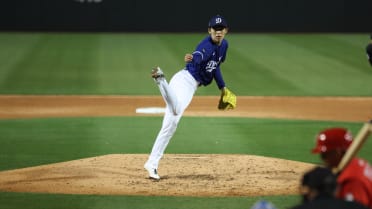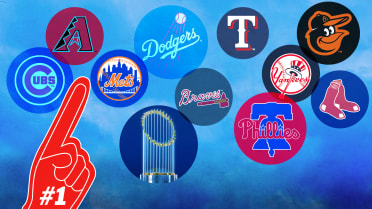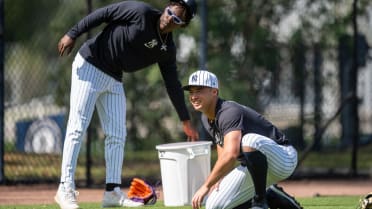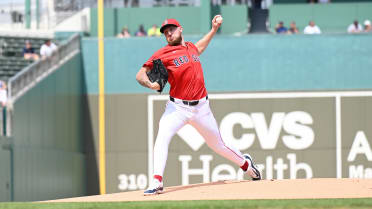Reds’ Top 5 right fielders: Sheldon's take
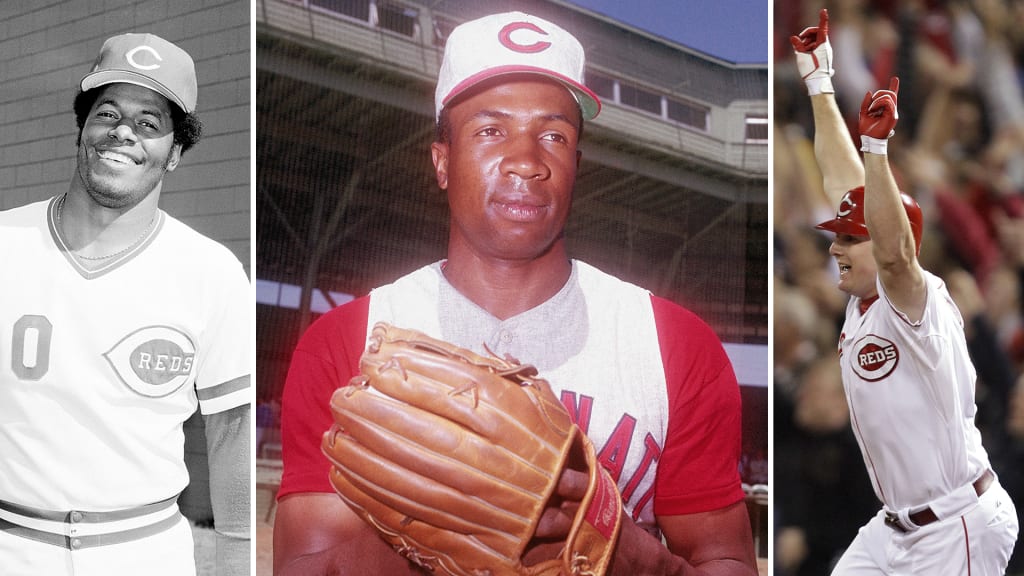
No one loves a good debate quite like baseball fans, and with that in mind, we asked each of our beat reporters to rank the top five players by position in the history of their franchise, based on their career while playing for that club. These rankings are for fun and debate purposes only … if you don’t agree with the order, participate in the Twitter poll to vote for your favorite at this position:
Here is Mark Sheldon’s ranking of the Top 5 right fielders in Reds history:
1) Frank Robinson, 1956-65
Key fact: The first MLB player to win MVP Awards in both the National League and American League
One of the most feared hitters in the game -- ever -- Robinson quickly established himself as a 20-year-old for the Reds as he hit 38 home runs and scored a league-leading 122 runs on his way to earning the NL Rookie of the Year Award. He would hit 30 or more homers in five of the next six seasons -- including 37 in 1961, when he won the NL MVP Award while also batting .323/.404/.611 with a league-best 164 OPS+ and 124 RBIs. Robinson played left field and first base early in his career but moved to right field full time in '62.
In a biography on the website for the Baseball Hall of Fame, which inducted him as one of its members in 1982, Robinson was known for his intensity and ability to crowd the plate.
“Pitchers did me a favor when they knocked me down,” Robinson said. “It made me more determined. I wouldn’t let that pitcher get me out. They say you can’t hit if you’re on your back, but I didn’t hit on my back. I got up.”
In 1965, the 30-year-old Robinson hit 33 home runs, but then-owner Bill DeWitt stated that he was an “old 30,” and the slugger was traded to the Orioles for pitchers Milt Pappas and Jack Baldschun, and outfielder Dick Simpson. It would be widely viewed by the Reds as their worst trade in their long history. Robinson won the Triple Crown and the AL MVP Award in '66 while batting .316/.410/.637 with 49 homers and 122 RBIs.
Robinson was also ranked as the Orioles' No. 1 all-time right fielder in a similar story for MLB.com.
2) Ken Griffey, 1973-81, '88-90
Key fact: Totaled 25.4 Wins Above Replacement, per Baseball-Reference, during his Reds years
Long before Ken Griffey Jr. became a superstar in the 1990s and 2000s, his father was a star in his own right and a key member of the “Great Eight” in the Big Red Machine dynasty of the '70s. Griffey batted .305/.391/.402 for the '75 team that won the World Series and an even better .336/.401/.450 for the ’76 club that repeated as champions. He also went 5-for-13 in the NL Championship Series sweep of Philadelphia that postseason.
A three-time All-Star for Cincinnati, Griffey batted .303/.370/.434 with 1,275 hits and a 123 OPS+ during his 12 seasons with the club. As the dynasty was broken up, bit by bit, the Reds traded Griffey to the Yankees for two Minor Leaguers after the 1981 season. He returned in ’88 and played parts of three seasons for Cincinnati but was released during the ’90 season before the Reds won another World Series.
3) Jay Bruce, 2008-16
Key fact: His 233 homers are the eighth-most in Reds history
Bruce was the No. 12 overall selection in the 2005 MLB Draft and was the organization’s No. 1 prospect when he debuted as a 21-year-old in '08 -- as a center fielder -- and went 3-for-3 before batting .591 with two homers over his first week as a big leaguer.
Over the next nine seasons, Bruce hit 233 home runs for Cincinnati, was a three-time All-Star and became a mainstay right fielder for the club, known for his strong and accurate left arm during its resurgence. The Reds won the NL Central in 2010 and ’12 and claimed the second NL Wild Card spot in '13. It was Bruce’s walk-off homer to center field in the bottom of the ninth of Game 157 that clinched the division in ’10 and provided a signature moment for the Reds and Great American Ball Park.
4) Wally Post, 1949-57, '60-63
Key fact: Went 6-for-18 with one home run during the 1961 World Series
One of the big power hitters of his time, Post hit 40 home runs with 109 RBIs in 1955 and 36 homers with 83 RBIs in ’56. He was voted by the fans to the '57 All-Star Game, but because Reds fans had stuffed the ballot boxes to have eight Cincinnati players start that summer, Commissioner Ford Frick excluded three players -- including Post -- and replaced them with Hank Aaron, Willie Mays and Stan Musial. He never appeared in the Midsummer Classic as a result.
Post was traded to the Phillies after the 1957 season but was brought back via a second trade during the ’60 season. In ’61, as the Reds went on to take the NL pennant, Post batted .294/.346/.585 with 20 homers.
5) Dave Parker, 1983-87
Key fact: Won MLB's very first Home Run Derby in 1985 in Minneapolis
Parker’s best years were with the Pirates, but the Cincinnati native had a strong second chapter of his career with the Reds after signing as a free agent. A two-time All-Star in Cincinnati, Parker's best season came in 1985, when he hit .312/.365/.551 with 34 homers and led the league with 42 doubles and 125 RBIs while finishing second in the NL MVP Award voting.
In 1986, Parker played in all 162 games and slugged 31 homers with 116 RBIs on his way to a fifth-place finish for the NL MVP Award. He departed via a trade to the A’s for pitchers José Rijo and Tim Birtsas after the ’87 season, when he hit 26 homers with 93 RBIs.
Honorable mentions
• Ival Goodman (1935-42) was a two-time All-Star, a member of two NL pennant winners and a World Series winner. He slugged a then-team record 30 homers in 1938.
• Paul O’Neill (1985-92) was a member of the 1990 World Series-winning team and a ’91 All-Star, when he hit 28 home runs.
• Reggie Sanders (1991-98) totaled 21.5 bWAR in his eight seasons with the Reds and batted .306/.397/.579 with 28 homers and 99 RBIs in '95, when the Reds reached the NLCS.
Senior Reporter Mark Sheldon has covered the Reds for MLB.com since 2006, and previously covered the Twins from 2001-05.

